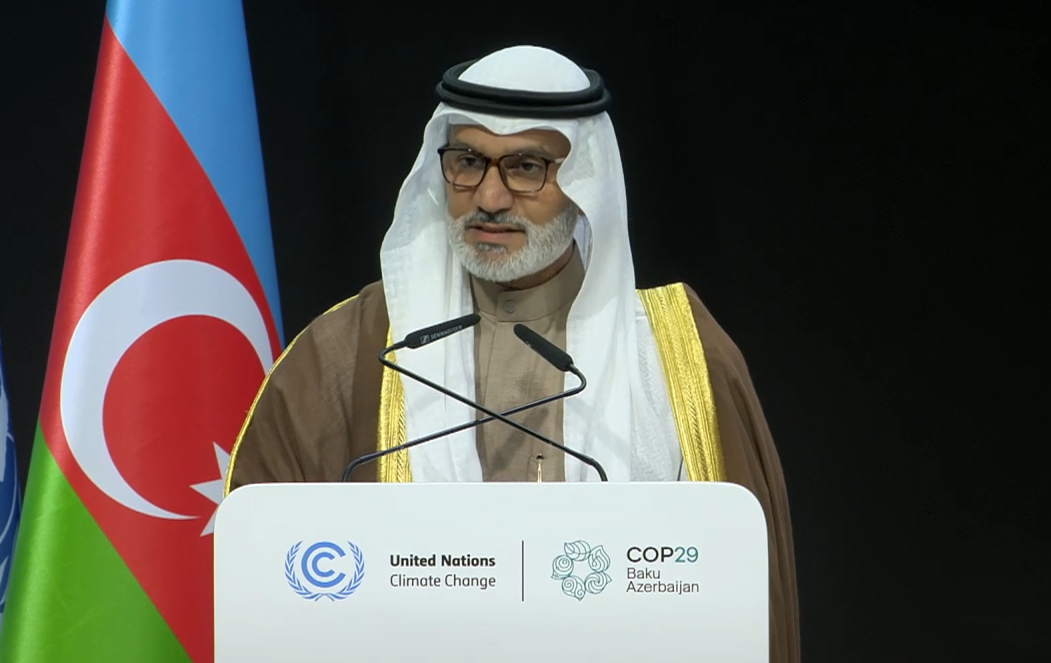BAKU, Azerbaijan, November 20. Balanced energy transition is a key to global sustainability, said Haitham Al Ghais, Secretary General of the Organization of the Petroleum Exporting Countries (OPEC), in a speech at the COP29 summit, Trend reports.
He emphasized the continued importance of oil and gas in addressing global energy needs while advocating for a balanced and inclusive approach to energy transitions.
Highlighting the historical significance of Azerbaijan as the birthplace of petroleum, Al Ghais stated, "Petroleum and petroleum-derived products continue to shape how we heat and cool our homes, construct our buildings, and transport ourselves from A to B." He also underscored the indispensable role of oil and gas in sectors such as food production, medical research, and manufacturing.
However, Al Ghais drew attention to the stark inequalities in energy access. "Around 685 million people worldwide still lack access to electricity, and 2.1 billion rely on unsafe and inefficient cooking fuels," he said. "The challenge lies in ensuring energy accessibility, meeting rising demand, enhancing security, maintaining affordability, and reducing emissions."
Al Ghais reaffirmed OPEC's position on embracing diverse energy sources and technologies. "The Paris Agreement focuses on reducing emissions, not choosing energy sources. We must leverage all available technologies and ensure that the needs of all peoples around the world are taken into account," he remarked.
He called for developed nations to meet their climate finance commitments, stressing the importance of funding and technology transfer to bridge gaps in energy accessibility. "Each party has the right to chart its own pathway to sustainability, respecting national circumstances and development priorities," Al Ghais noted, advocating for inclusive dialogue and international cooperation to address climate and energy challenges.
In closing, he praised Azerbaijan for its leadership and hospitality, emphasizing the need for collaborative efforts to build a sustainable future. "There is no one-size-fits-all solution, but together, through dialogue and cooperation, we can achieve a balanced energy transition that leaves no one behind," he concluded.







